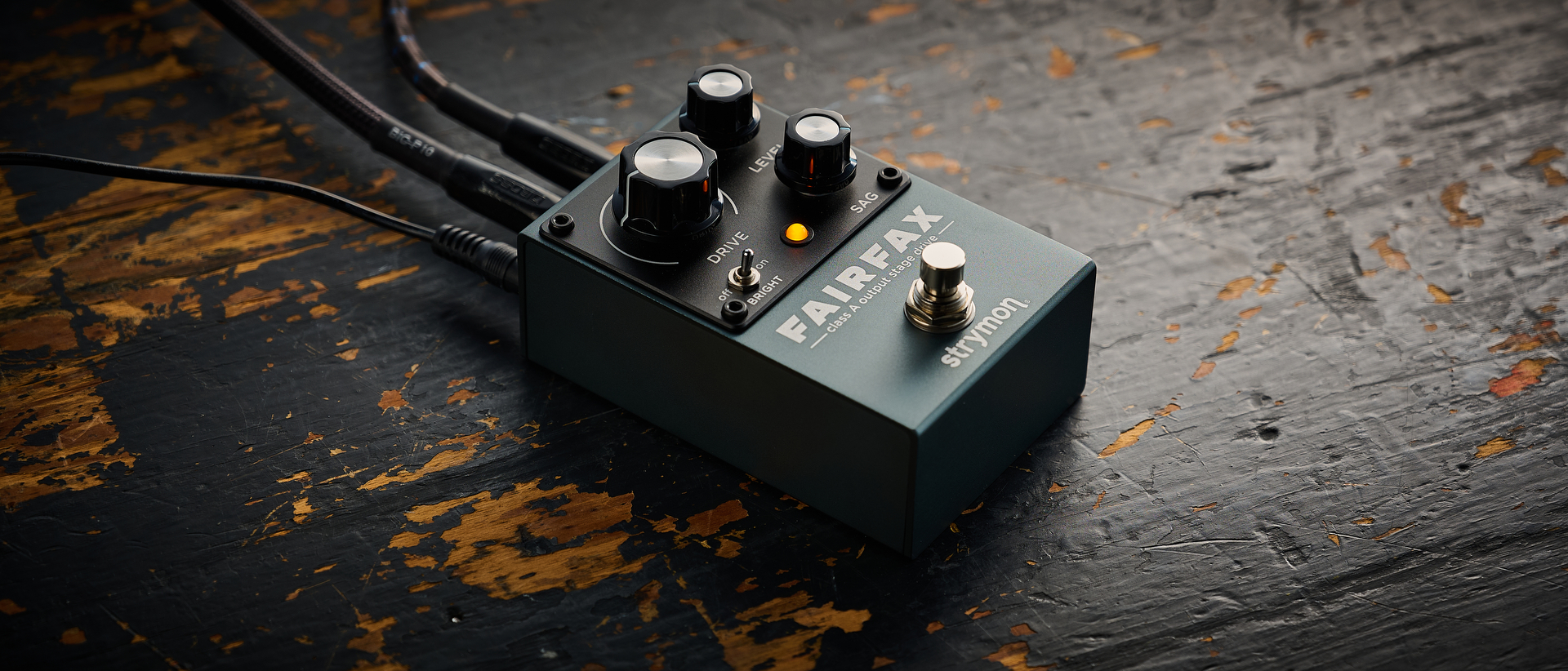“I prioritized music over my health for 20 years. I’ve paid a high price for that”: Hotly tipped alt-rockers Dinosaur Pile-Up were on the verge of success, then frontman Matt Bigland nearly died for his music. He won’t let it happen again
The guitarist and frontman reveals what he’s learned after 20 years of pushing too hard against the industry current, and the surprising upside of not being able to work as hard as he used to

All the latest guitar news, interviews, lessons, reviews, deals and more, direct to your inbox!
You are now subscribed
Your newsletter sign-up was successful
It’s been a hot minute since Dinosaur Pile-Up released new music – and vocalist-guitarist Matt Bigland has his reasons.
By 2019, the Leeds, UK, native had a string of hard-won accomplishments to his name, including support slots with Shinedown, The Offspring and Sum 41. That year’s album, Celebrity Mansions, looked poised for success.
But getting there had cost him. A decade’s strain of tour van life and poor mental health sent him into physical and mental exhaustion. By 2021 he was suffering centimetre-wide sores on his tongue and throat, which affected his ability to eat, drink and talk. A diagnosis of ulcerative colitis followed.
Four years on, his near-death experience has given him a fresh outlook on life’s fragility, helping create his most vulnerable and compelling work to date.
“Life is different when you lose your health,” Bigland said. “It takes the joy out of life. Everything I have to manage now is due to poor mental health. I think about that more than I ever did before.
“Music was the pinnacle of my life and my priority – it was quite an unhealthy way to be. Now, I create music for the joy of it rather than for survival.”
The new Dinosaur Pile-Up album, wryly titled I’ve Felt Better, channels his irresistible riff-centric alt-rock into the anguish of past relationships, the warped music industry, illness, insecurities, and the seemingly overwhelming truth of what it takes to be a rock musician in 2025.
All the latest guitar news, interviews, lessons, reviews, deals and more, direct to your inbox!
“I knew life was fragile from a young age,” Bigland says. “Having an up-close view of life ending was pretty real. Being able to off-load that into writing, and not feeling embarrassed by it, felt honest.”
First things first – how are you feeling?
“Life-wise, it’s good; it feels really awesome to finally put stuff out into the world. Health-wise, it’s a constant managing. I’m up and down pretty much all the time.”
Can you remember the moment you connected to music and guitar?
“I was nine years old and I found a comically influential stack of CDs on my brother’s desk. Deftones’ Adrenaline and Rage Against the Machine’s Evil Empire. I didn’t have a music taste prior to that – I was listening to [popular UK compilation format] Now That’s What I Call Music!
“I remember hearing Zero by Smashing Pumpkins and My Own Summer by Deftones. It was almost like I could feel my brain physically expanding. The tone Billy Corgan played in Zero was demonic in a way.
“The day after, I had to start leaning to play guitar. I eventually took lessons to learn improvisation, and my whole life changed when my cousin showed me a power chord.”
You’ve stayed loyal to one guitar, your Gibson Explorer.
“It’s a 1979 reissue Explorer, not an original, but it’s super-nice. I bought it when I was 18. The only one I could find was in Glasgow for £700, so I took the train up, bought the guitar and got the train home.
“I use it a lot to create feedback and harmonics, and I wear it very low. From where I’m strumming, I’ve dug the wood from around the pickups and over the shoulder – there’s no lacquer there anymore.
I’d love to say making an album helped me process, deal or even heal my illness… it was not the fix
“I only ever use the bridge pickup, so I’ve ripped out the neck pickup and all its electronics. It means if there’s a fault with the wiring, it can only be one thing!”
What are your gear staples for playing live?
“I’ve never used many pedals. My main sound is quite direct, then I have a chunkier sound to create the bottom end; they blend in a really nice way. I used two Marshall JCM800s, one with a Tube Screamer and the other with a Big Muff.

“But recently I became endorsed with Laney and I started using an Ironheart, which is really good at chugging. I used the Laney GHR for a fatter sound. I liked the fact I didn’t need to muddy anything with pedals – it was just the amp doing all the heavy lifting.
“Now I’ve switched to a Quad Cortex using a Laney 4x12 power cab. Dinosaur has a small crew, so touring space and weight-wise it’s better. I got Laney to switch out the amps for power cabs, so that I have my sound directly out the sound system at shows, with the cabs moving air behind me.
“The versatility of plugins is wild. From a continuity POV, it’s always consistent. Setting up is exactly the same from the previous show.”
How would you summarize your new album I’ve Felt Better?
“I really believe in the record and the writing; I hope people see and respect the craftmanship. I often shroud vulnerability in humor because I don’t want to be too heavy. There’s lots of subjects on the record. I’ve Felt Better is about being unhappy with the world. I think people can relate to that sentiment.
“I’d love to say making an album helped me process, deal or even heal my illness. It was definitely part of the process, but making an album was not the fix. My health experience will stay with me for a long time.”
What’s the story behind Big Dogs?
“When you’re grinding and hustling, no-one pays attention, but as soon as you become a star, everyone gives you everything for fucking free – why isn’t it the other way round?
“Everyone’s climbing over everybody for wealth and fame. Big Dogs’ verses are fictional experiences of meeting people in normal walks of life who want to get out, because if you’re a big dog you get to eat for free!”
What’s your favorite piece of playing on the album?
My number-one priority was to survive in music, which I’m proud of, but I’ve paid a high price for that
“I love the metal-ness of ‘Bout to Lose It. I lived that dream of writing a killer riff with a massive power chorus. I love the juicy Weezer-esque chords all over the album, the picking chords in Loves the Worst, the solo in Quasimodo Melonheart and the rawness of Punk Kiss. There isn’t a song that I don’t like!
“Due to being sick, the recording sessions were massively extended. I distilled songs for a long time. In today’s culture everyone feels the pressure to deliver constantly, but that’s not how you write good music. Time is the most important ingredient.”
My Way is about the music trade. What’s your own experience of that?
“Pretty depressing. I’ve struggled for the whole of Dinosaur’s career because of streaming. Music is criminally devalued, and that’s permeated into our societal culture. You pay for everything except music; for younger generations, music has always been free.
“If you want to create music, you have to do it. Don’t quit – but never prioritize music over your health, which I did for 20 years. My number-one priority was to survive in music, which I’m proud of, but I’ve paid a high price for that.
“I didn’t realize stress and bad mental health could turn into something physical. It’s super-fucked up that streaming culture can affect creators’ mental health so much that they’re hospitalized.
“Musicians have to be really clever about making music and delivering a live show. Music doesn’t generate money like it used to. I now see value in finding your niche and a small tribe of people who’ll support you.”
- I’ve Felt Better is released on August 22 and available to preorder now.
Naomi Baker is a contributing freelance music journalist for GuitarWorld.com. After interviewing the legendary Mick Wall for her dissertation on rock journalism’s evolution, she now pursues her passions for writing and rock music. Naomi plays guitar and bass and loves nothing more than scrutinizing artists who heavily shaped and paved the ways of rock. She revisits music played extensively throughout her childhood daily, with acts like Thin Lizzy, The Darkness and Queens of the Stone Age top of the list.
You must confirm your public display name before commenting
Please logout and then login again, you will then be prompted to enter your display name.





